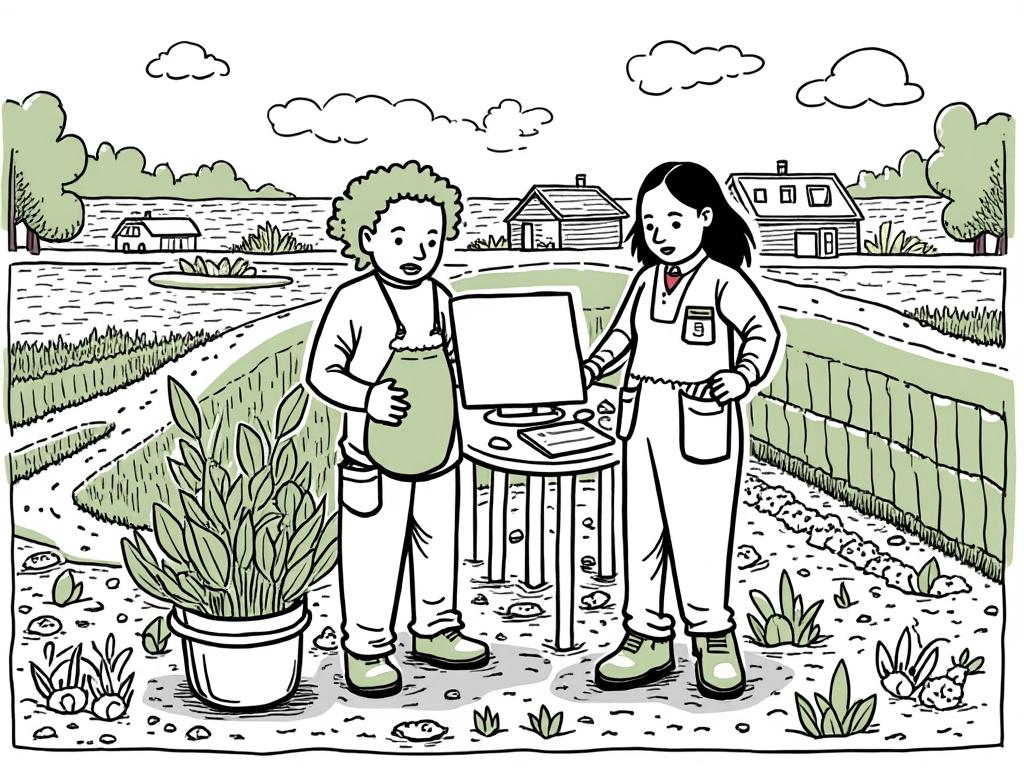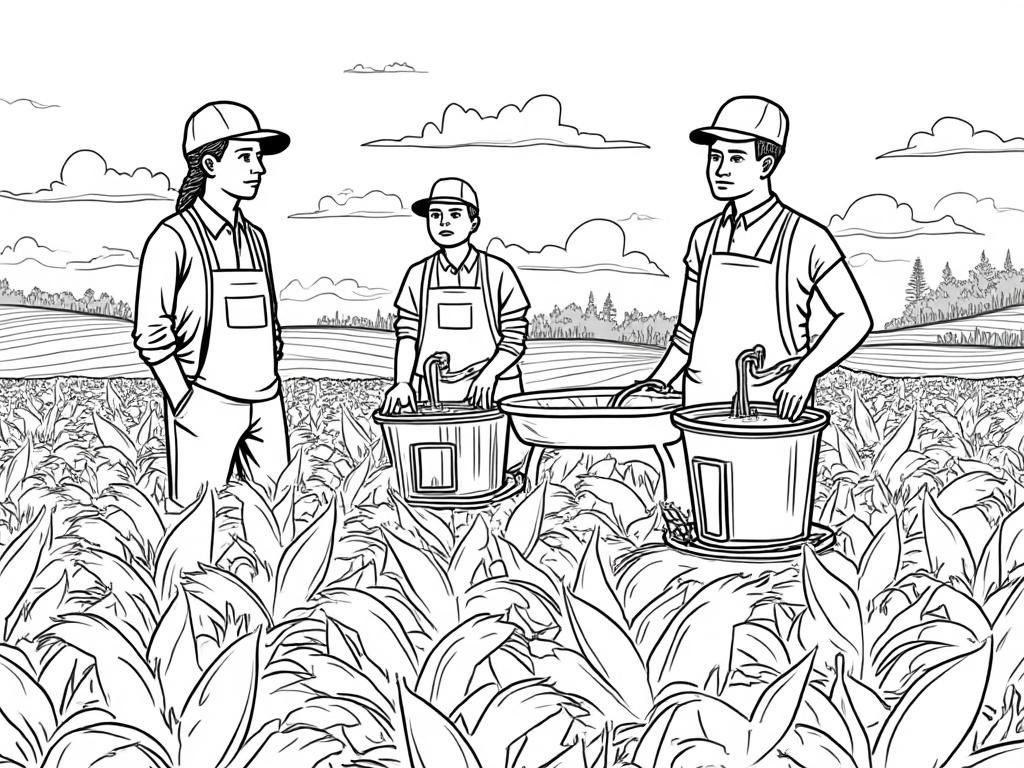
Organic Farming and Sustainable Agriculture in Greece: Your Complete Guide to Mediterranean Eco-Innovation
Reading time: 12 minutes
Ever wondered how Greece is transforming its ancient agricultural heritage into a modern sustainability powerhouse? You’re about to discover a fascinating journey where olive groves meet cutting-edge organic practices, creating opportunities that extend far beyond farming itself.
Table of Contents
- The Current Landscape of Greek Organic Agriculture
- Certification Pathways and Regulatory Framework
- Innovative Sustainable Practices Reshaping Greek Farms
- Economic Opportunities and Market Dynamics
- Overcoming Common Challenges
- Investment and Property Considerations
- Your Roadmap to Greek Agricultural Success
- Frequently Asked Questions
The Current Landscape of Greek Organic Agriculture
Greece’s organic farming sector has experienced remarkable growth, with over 500,000 hectares now under organic cultivation—representing nearly 8% of the country’s total agricultural land. This isn’t just numbers on paper; it’s a complete transformation of how Greeks approach food production.
The Mediterranean climate provides an inherent advantage for organic farming. With abundant sunshine, limited rainfall concentrated in winter months, and diverse microclimates, Greece offers ideal conditions for reducing chemical inputs naturally. This climate advantage translates into lower production costs and higher quality organic products.
Key Growth Sectors
Let’s examine where organic farming is making the biggest impact:
Organic Agriculture Growth by Sector
Case Study: The Kalamata Olive Revolution
Take the story of Dimitris Koutsogiannis, a third-generation farmer from Messinia. In 2018, he converted his 50-hectare olive grove to organic certification. “The transition wasn’t easy,” Dimitris recalls, “but our organic Kalamata olives now command 40% higher prices in European markets.” His success demonstrates how traditional Greek products gain premium value through organic certification.
Regional Hotspots
Certain regions have emerged as organic farming leaders:
- Crete: Leading in organic olive oil and wine production
- Peloponnese: Dominant in organic citrus and stone fruits
- Thessaly: Pioneering organic cotton and grain production
- Northern Greece: Specializing in organic herbs and medicinal plants
Certification Pathways and Regulatory Framework
Navigating Greek organic certification might seem complex, but here’s the straight talk: Success comes from understanding the system, not fighting it.
Greece operates under EU organic regulations (EU 2018/848), which are among the world’s most stringent. The certification process involves three main bodies:
Certification Bodies and Timeline
| Certification Body | Specialization | Average Timeline | Cost Range (EUR) |
|---|---|---|---|
| DIO | General agriculture | 12-18 months | 800-2,500 |
| LACON | Wine & processed foods | 10-15 months | 600-2,000 |
| BIOHELLAS | Olive oil & herbs | 8-12 months | 500-1,800 |
| TÜV AUSTRIA | Export-focused operations | 6-10 months | 700-2,200 |
The Three-Year Conversion Process
Here’s what many don’t tell you: The conversion period is your opportunity, not your obstacle. During these three years, you can:
- Year 1: Focus on soil improvement and building organic matter
- Year 2: Establish beneficial insect populations and natural pest control
- Year 3: Fine-tune production systems and prepare for full certification
Pro Tip: Start marketing your “conversion to organic” story immediately. European consumers increasingly value transparency and sustainability journeys.
Innovative Sustainable Practices Reshaping Greek Farms
Greek farmers are pioneering Mediterranean-specific sustainable techniques that go beyond basic organic compliance. These innovations address water scarcity, soil health, and biodiversity—three critical challenges in the region.
Water-Smart Agriculture
With Greece facing increasing drought pressure, water efficiency has become crucial. Leading farms are implementing:
- Precision irrigation systems: Reducing water usage by 30-50%
- Mulching with olive pomace: Retaining soil moisture while recycling waste
- Drought-resistant rootstocks: Maintaining productivity during dry spells
Success Story: Gaia Wines’ Sustainable Vineyard
Gaia Wines in Santorini has revolutionized water management by combining traditional Assyrtiko grape cultivation with modern drip irrigation and soil moisture sensors. Their approach reduced water consumption by 45% while improving grape quality. “We’re not just growing grapes,” explains winemaker Yiannis Paraskevopoulos, “we’re cultivating a sustainable future for Greek viticulture.”
Biodiversity Enhancement Strategies
Modern Greek organic farms are becoming biodiversity hotspots through strategic planning:
- Companion planting: Integrating aromatic herbs between crop rows
- Native pollinator gardens: Supporting local bee populations
- Traditional terracing restoration: Preventing erosion while creating habitat diversity
Integrated Pest Management (IPM)
Greek farmers are mastering IPM techniques specifically adapted to Mediterranean conditions:
- Beneficial insects: Using Trichogramma wasps for olive fly control
- Pheromone traps: Monitoring and controlling pest populations
- Natural predator habitats: Creating owl boxes and insect hotels
Economic Opportunities and Market Dynamics
Let’s talk numbers that matter to your bottom line. The Greek organic sector isn’t just growing—it’s becoming genuinely profitable for those who understand the market dynamics.
Premium Pricing Reality
Organic products in Greece command significant premiums:
- Organic olive oil: 35-60% premium over conventional
- Organic wine: 40-80% premium in export markets
- Organic herbs: 200-300% premium for certified medicinal varieties
- Organic honey: 50-100% premium for thyme and pine honey
But here’s the catch: Premium pricing only works if you can access premium markets. This means building relationships with high-end restaurants, organic retailers, and export partners.
Export Market Opportunities
German and Austrian markets consume over 40% of Greek organic exports, but emerging opportunities exist in:
- North America: Growing demand for Mediterranean organic products
- Japan: Premium market for Greek organic olive oil and wine
- Middle East: Expanding organic food sector in UAE and Saudi Arabia
Case Study: Organic Herb Export Success
Maria Stavropoulou from Zagori transformed her family’s traditional herb collection into a €300,000 annual organic herb export business. By focusing on wild oregano, mountain tea, and sage, she now supplies organic food chains across Europe. “The key was understanding that organic certification opened doors, but quality and consistency kept them open,” she explains.
Agritourism Integration
Organic farms are increasingly combining production with tourism experiences:
- Farm-to-table experiences: Generating €50-150 per visitor
- Organic cooking workshops: Premium pricing for authentic experiences
- Sustainable accommodation: Eco-lodges on organic farms
Overcoming Common Challenges
Every Greek organic farmer faces similar obstacles. Here’s how successful operations overcome the most common ones:
Challenge 1: High Initial Investment
The Problem: Organic certification, equipment, and transition costs can reach €5,000-15,000 per hectare.
Strategic Solutions:
- EU Rural Development funding: Covers up to 50% of conversion costs
- Cooperative partnerships: Share equipment and certification costs
- Phased conversion: Convert high-value crops first, then expand
Challenge 2: Market Access and Distribution
The Problem: Small-scale producers struggle to reach premium markets directly.
Proven Approaches:
- Producer cooperatives: Pool resources for marketing and distribution
- Digital marketing: Direct-to-consumer sales through e-commerce
- Farmer’s markets: Build local brand recognition and customer base
Challenge 3: Technical Knowledge Gaps
The Reality: Organic farming requires different skills than conventional agriculture.
Knowledge-Building Strategy:
- Agricultural University programs: Specialized organic farming courses
- Mentor partnerships: Learn from experienced organic farmers
- International exchanges: Study successful organic operations abroad
Quick Scenario: Imagine you’re converting a traditional olive grove. What’s your biggest concern? Likely it’s maintaining yields during transition. Successful farmers address this by improving soil health first, then focusing on natural pest control systems.
Investment and Property Considerations
The intersection of organic farming and real estate investment in Greece presents unique opportunities. Agricultural land prices have remained relatively stable while organic-certified properties command premiums.
For international investors interested in buying real estate in greece, organic farmland offers both agricultural income potential and long-term asset appreciation. Properties with existing organic certification or strong conversion potential are particularly valuable.
Investment Fundamentals
Key factors affecting agricultural property values:
- Water rights and availability: Essential for sustainable operations
- Soil quality and certification status: Organic-certified land commands 15-25% premiums
- Infrastructure accessibility: Proximity to processing facilities and ports
- Climate resilience: Properties with microclimates suited to drought conditions
Foreign investors should understand that agricultural land purchases in Greece require specific legal procedures, but the process is straightforward for EU citizens and structured for non-EU investors through established legal frameworks.
Your Roadmap to Greek Agricultural Success
Ready to transform your interest in Greek organic farming into actionable results? Here’s your strategic implementation roadmap:
Immediate Action Steps (Next 30 Days)
- Conduct market research: Identify your target crops and export markets
- Visit successful operations: Connect with established organic farms in your chosen region
- Assess financial requirements: Calculate startup costs including certification fees
- Explore funding options: Research EU grants and local agricultural support programs
Medium-term Development (3-6 Months)
- Secure property or partnerships: Whether purchasing land or collaborating with existing farms
- Begin certification process: Choose appropriate certification body and submit applications
- Develop technical expertise: Enroll in organic farming courses or mentorship programs
- Build market relationships: Connect with distributors, retailers, and export partners
Long-term Strategic Goals (1-3 Years)
- Achieve full organic certification: Complete the three-year transition period successfully
- Establish brand recognition: Develop strong marketing presence in target markets
- Expand operations: Scale successful practices to additional properties or crops
- Consider value-added services: Integrate agritourism or processing capabilities
The Greek organic farming sector represents more than an agricultural opportunity—it’s a chance to participate in the Mediterranean’s sustainable future while building a profitable enterprise. As climate change reshapes global agriculture, Greece’s natural advantages and growing expertise in organic methods position it as a leader in sustainable Mediterranean agriculture.
What specific aspect of Greek organic farming most aligns with your goals and timeline? The answer to this question will determine your most effective entry strategy into this growing sector.
Frequently Asked Questions
Can non-EU citizens invest in Greek agricultural land for organic farming?
Yes, but with specific legal requirements. Non-EU citizens can purchase agricultural land in Greece through established legal procedures, often requiring local legal representation and demonstrating agricultural intent. The process typically takes 3-6 months and involves approval from local agricultural authorities. Many investors successfully navigate this process by working with specialized agricultural real estate attorneys.
How much initial investment is needed to start organic farming in Greece?
Initial investment varies significantly by crop type and scale. For a 10-hectare olive grove conversion, expect €50,000-80,000 including land preparation, certification costs, and equipment. Herb cultivation requires €20,000-40,000 per hectare but offers faster returns. Wine grape operations need €80,000-150,000 per hectare due to specialized equipment requirements. EU rural development grants can cover 30-50% of eligible costs.
What are the main export markets for Greek organic products?
Germany and Austria dominate, representing 45% of Greek organic exports, followed by the Netherlands (12%) and France (10%). Emerging markets include North America, Japan, and Gulf states. Organic olive oil and wine have the strongest export demand, while herbs and honey offer niche premium opportunities. Success requires understanding specific market regulations and consumer preferences in target countries.

Article reviewed by Adrian Sokolov, Post-Soviet Industrial Assets | Revitalizing Manufacturing Zones, on June 6, 2025





